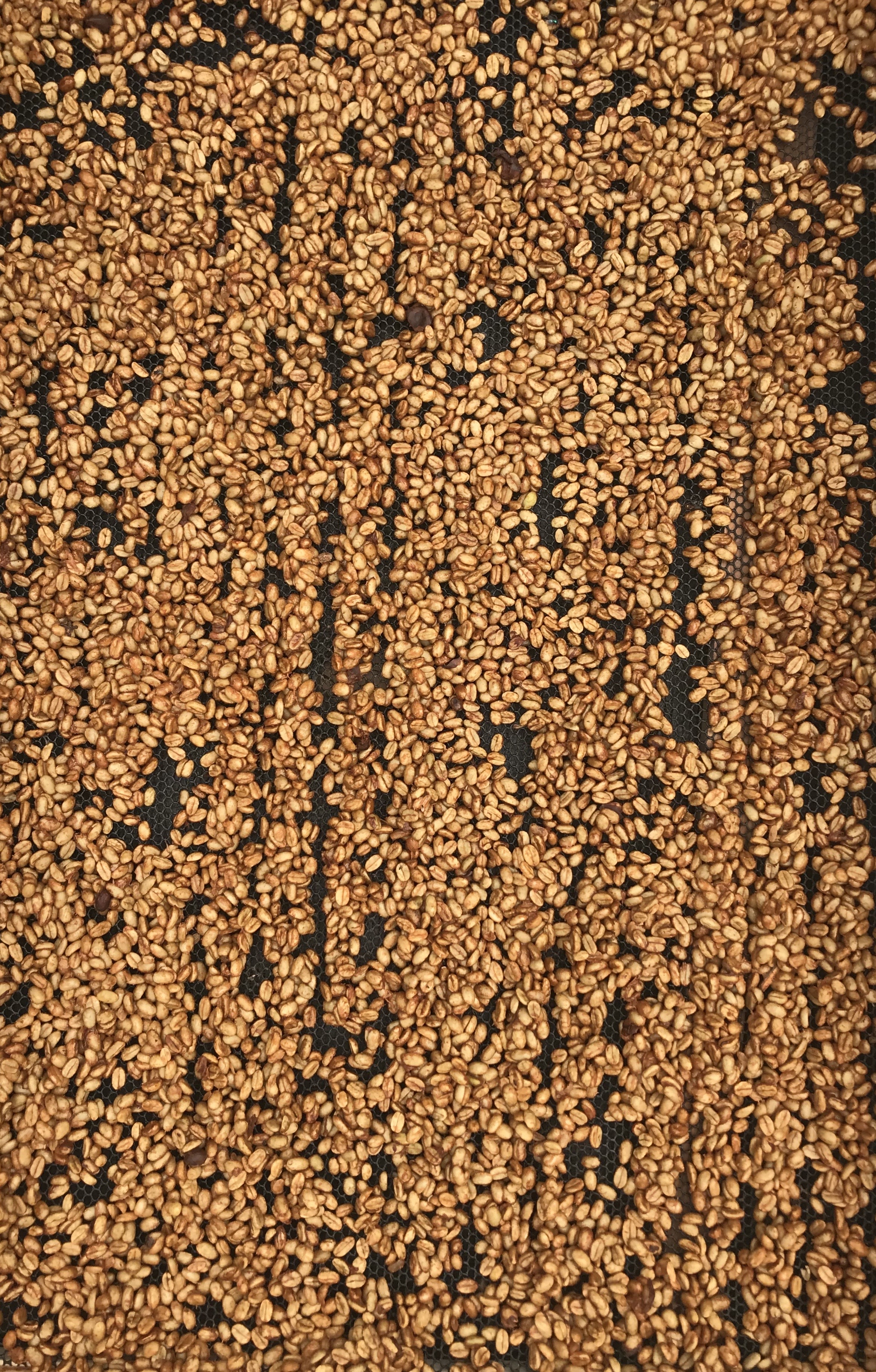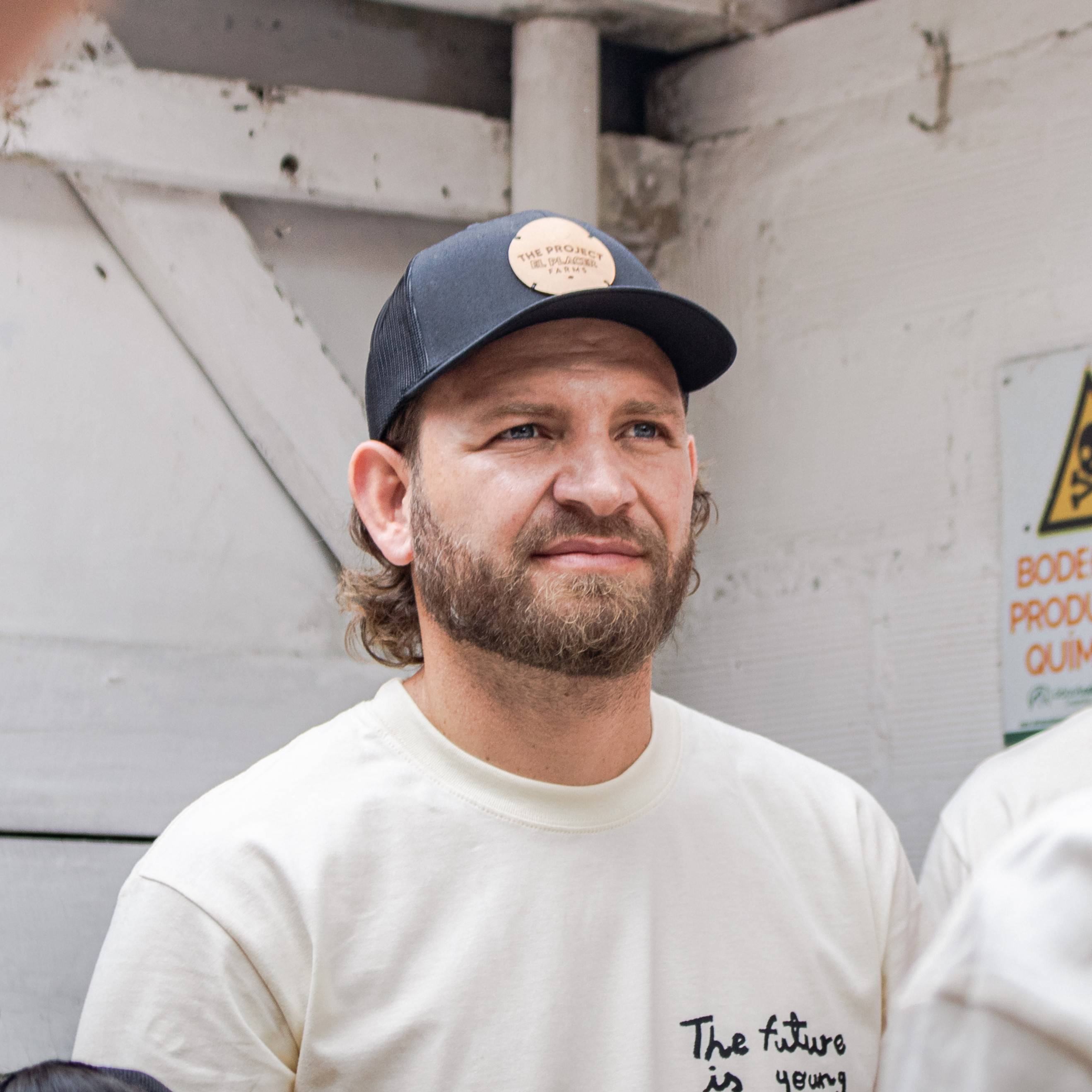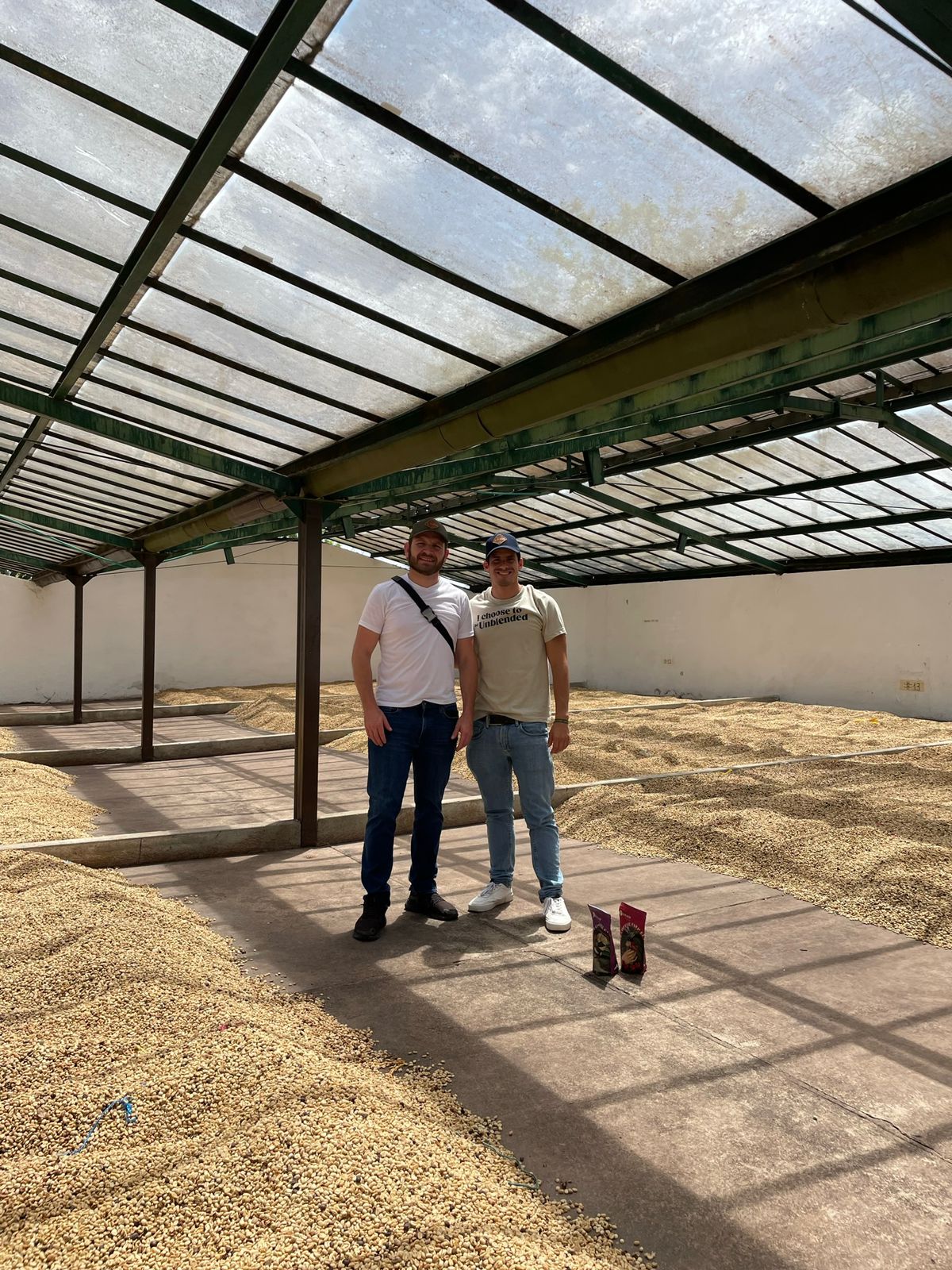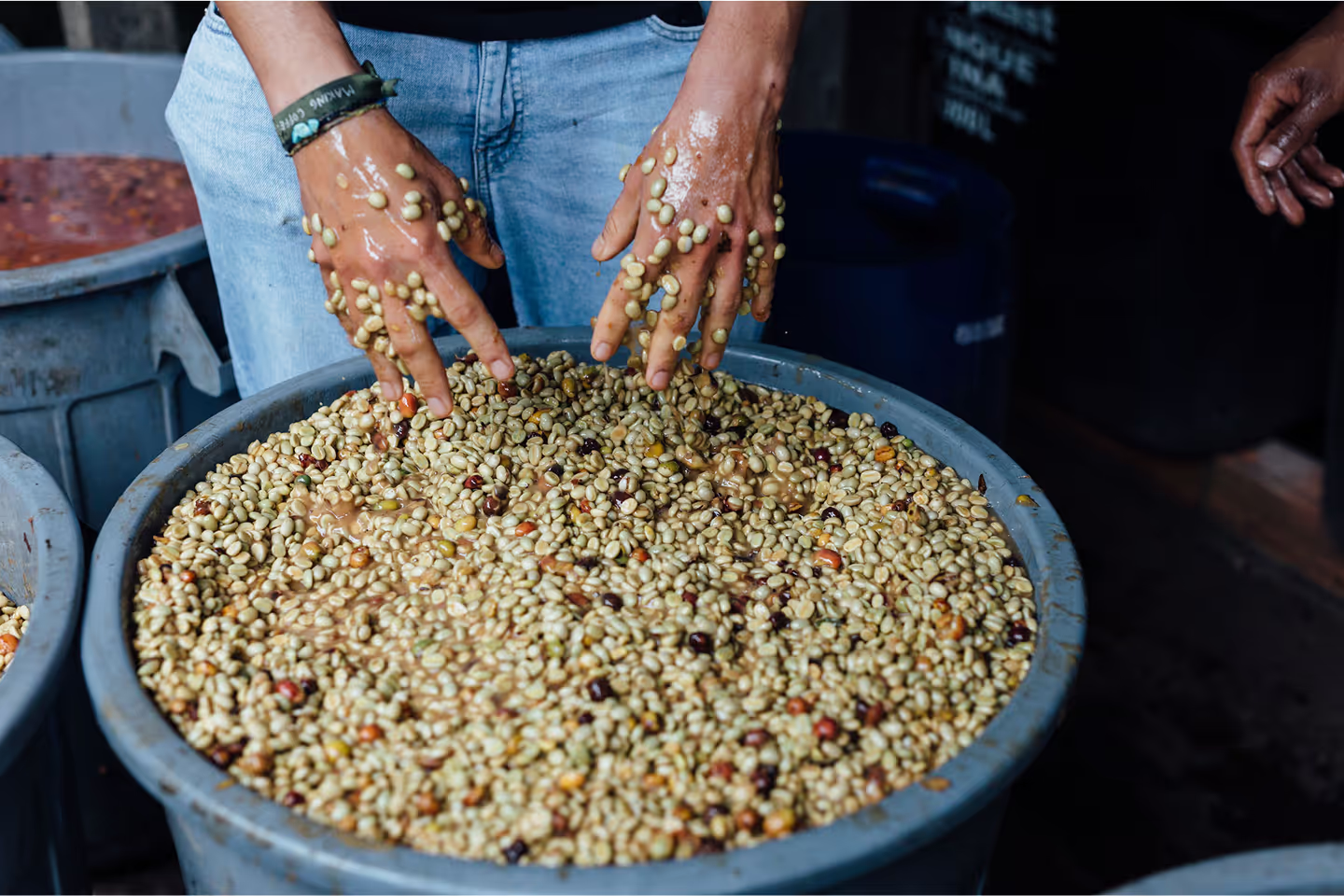Pink Bourbon BG
$
15
/lb
After a careful cherry selection process, the coffee undergoes anaerobic fermentation (without oxygen) in 200-liter tanks with CO2 injection, lasting around 200 hours at a consistent temperature. Subsequently, it enters a 20-day drying phase. During fermentation, microorganisms, nourished by the yeast Sebastian labels as BG, are introduced. These microorganisms originate from plants on the farm, such as lemongrass, mint, and thyme. They contribute sweetness and spicy notes, resulting in an extraordinary coffee!
Taste Profile
Variety

Buy this coffee
Contact us to buy this green coffee for your roastery
How this coffee was produced
This process takes an anaerobic fermentation using microorganisms, nourished by the yeast Sebastian labels as BG. These microorganisms originate from plants on the farm, such as lemongrass, mint, and thyme.
Harvesting and Stabilization
Harvest and sort cherries, with 95% being ripe and 5% semi-ripe.
Processing and Fermentation
Anaerobic fermentation in 200-liter tanks with CO2 injection, lasting 200 hours at a constant temperature of 18°C adding BG microorganisms
Drying
A two-phase drying process (initial controlled drying for about 20 days and additional drying for approximately 5 days) under shade netting

Sebastian Ramirez
A fourth-generation coffee farmer, Sebastian specializes in Carbonic Maceration & varietal innovation, pushing the boundaries of specialty coffee.
El Placer
Sebastian's farm operates as a processing facility rather than a traditional coffee farm. In the 1980s, it was a large coffee estate in Quindío, but today, only half of its original production remains active. He oversees the purchase of cherries grown on the farm and sources select specialty varieties from Huila—currently, his Geisha and some Pink Bourbon come from there. Sebastian is responsible for processing and developing flavor profiles, ensuring the highest quality in every batch. Additionally, he has recently acquired a new farm, where he plans to focus on cultivating more exclusive varietals such as wush wush, Sl 28, etc. that are not easily grown in his region.




